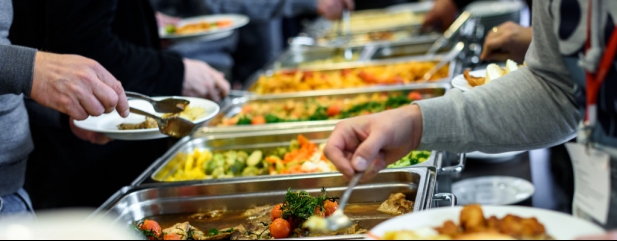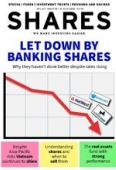Archived article
Please note that tax, investment, pension and ISA rules can change and the information and any views contained in this article may now be inaccurate.
Why Compass shares have beaten the FTSE 100 index this year

With all the gloomy headlines about rising interest rates, rising energy prices and a risk of recession it’s easy to overlook the fact some companies are doing very nicely for themselves.
Take FTSE 100 food service company Compass Group (CPG), whose shares are up 10% this year at £18.20, their highest level since March 2020, giving the firm a market value of over £32 billion.
BUSINESS AS USUAL
Despite fears of workplaces being unmanned due to the slow return to the office and the rise of remote working post-pandemic, Compass has seen its activity levels rise back towards pre-Covid levels this year.
In the three months to March, underlying revenues were 99% of the same quarter’s revenues in 2019 thanks to strong demand in the US and Europe.
Organic revenue growth was close to 38% for the first half, leading the firm to raise its full-year growth forecast to 30% from 20% to 25% previously.
Growth was healthy across all divisions with a notable improvement in volumes in Business & Industry and Education.
The client retention rate was a record 95.8% in the half, while new business wins over the 12 months to March were also a company record at £2.5 billion, equivalent to a whole year’s turnover more or less.
For many firms, being able to offer incentives such as providing food has helped greatly not just with attendance but also with staff retention and recruitment.
HIGHER RETURNS
The first half operating margin jumped from 3.4% to 5.8% as the firm kept cost rises down and is expected to continue rising in the second half with an anticipated exit rate of over 7% in September.
Higher inflation in food, energy and labour is encouraging more firms to consider outsourcing the food service operations which is generating ‘significant market growth opportunities’ for Compass.
The firm estimates it has around a 10% share of the £220 billion a year global market for food services, with around half of the market still operated by firms using ‘in-house’ caterers and another 25% of the market split between myriad smaller regional providers, giving it a long runway of growth.
After investing between 3% and 4% of revenues in the business and making bolt-on acquisitions, which have to pass strict return criteria, the firm is set to increase shareholder returns.
At the half-year stage it committed to pay out 50% of underlying earnings in dividends and to return any excess capital through buybacks and special dividends.
With revenues and earnings rising at a double-digit rate and the firm already having announced a share buyback of up to £500 million, total returns for this year are looking pretty attractive already.
Important information:
These articles are provided by Shares magazine which is published by AJ Bell Media, a part of AJ Bell. Shares is not written by AJ Bell.
Shares is provided for your general information and use and is not a personal recommendation to invest. It is not intended to be relied upon by you in making or not making any investment decisions. The investments referred to in these articles will not be suitable for all investors. If in doubt please seek appropriate independent financial advice.
Investors acting on the information in these articles do so at their own risk and AJ Bell Media and its staff do not accept liability for losses suffered by investors as a result of their investment decisions.
Issue contents
Education
Feature
Great Ideas
News
- Profit warnings galore as companies struggle with higher costs and lower demand
- Find out why consumer health group Haleon’s debut fell flat
- Investors are rushing to exit funds as small cap specialists really suffer
- Wealth preserver Ruffer warns bear market is ‘only mid grizzle’
- Fevertree’s earnings forecasts slashed by nearly 50% after problems get worse
 magazine
magazine








